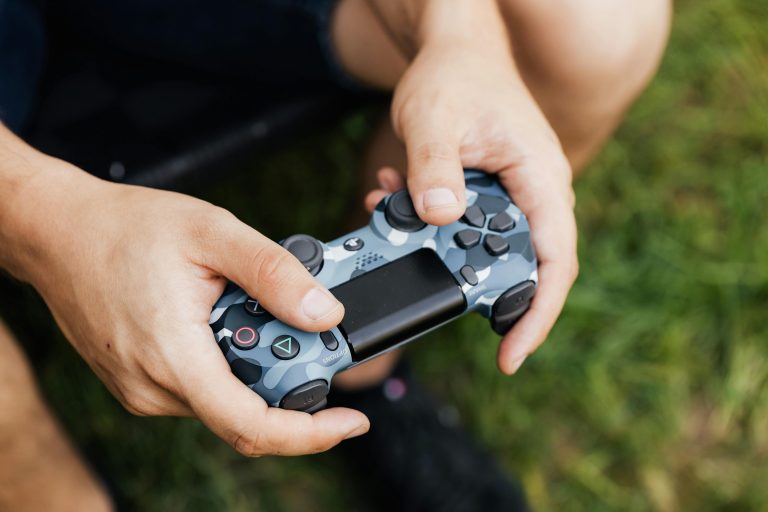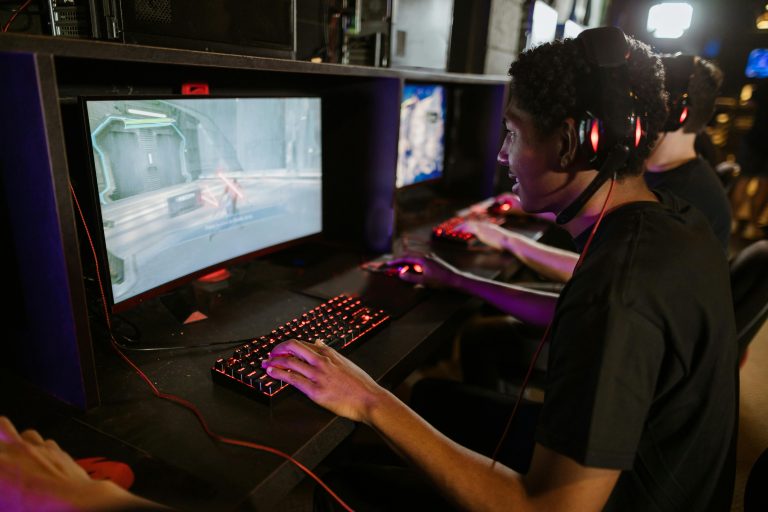
Imagine logging into your favorite online game, but instead of the usual cacophony of squeaky headsets and generic text chat, you’re greeted by the smooth, confident baritone of a seasoned commander, perfectly coordinating your team’s assault. Or perhaps you hear the witty, sarcastic banter of your best friend, who is actually halfway across the world and offline. This isn’t science fiction; it’s the emerging reality powered by AI voice cloning. The way we communicate within virtual worlds is on the cusp of a seismic shift, moving beyond simple voice chat and text-to-speech into a new era of hyper-personalized, immersive, and dynamic interaction. AI voice cloning is poised to revolutionize in-game communication, transforming it from a mere utility into a core feature that enhances storytelling, social connection, and competitive play.
From Text to Talk: Breaking Down Communication Barriers
For decades, text chat has been the default communication method for millions of gamers. While functional, it has significant limitations. Typing mid-gameplay is cumbersome, breaks immersion, and in fast-paced competitive titles, a split-second delay can mean the difference between victory and defeat. Voice chat solved the speed issue but introduced new problems: social anxiety, language barriers, toxicity, and the simple fact that many players are not comfortable using their real voice in a public forum.
AI voice cloning elegantly bridges this gap. Players can now type their message and have it delivered in a natural-sounding, cloned voice of their choice. This means a shy player can communicate with the authority of a galactic hero, or a non-native speaker can express complex strategies without the fear of a thick accent being misunderstood. It democratizes voice communication, allowing everyone to participate fully without the social pressures associated with using their authentic voice. This technology effectively merges the thoughtful composition of text with the immediacy and emotional nuance of speech, creating a richer and more inclusive social environment for all.
Hyper-Realistic NPCs and Dynamic Storytelling
The impact of AI voice cloning extends far beyond player-to-player interaction. Its most profound application may lie in revolutionizing non-player characters (NPCs). Traditionally, NPC dialogue is limited to pre-recorded lines delivered by voice actors. This creates a inherent limitation in branching narratives and open-world games—characters can only say what was recorded, making dynamic, player-driven conversations impossible.
AI voice cloning, combined with large language models, shatters this constraint. Imagine an RPG where every villager, merchant, or quest-giver can engage in unique, unscripted conversations. Developers could clone the voice of a key character and then generate infinite lines of dialogue on the fly, all delivered in that character’s consistent, recognizable voice. The town blacksmith could comment on the specific armor you’re wearing, or a defeated villain could taunt you using details from your previous encounters. This creates an unprecedented level of immersion, making game worlds feel truly alive and responsive to the player’s actions, rather than following a predetermined script.
The New Frontier of Player Expression and Identity
Gaming has always been a form of escapism and identity exploration. Players spend hours customizing their avatar’s appearance, but until now, their voice—a fundamental part of identity—remained unchanged. AI voice cloning adds a powerful new layer to character customization. Players are no longer tethered to their biological voice; they can embody anyone they wish.
Want your hulking Orc warrior to sound like a beloved celebrity or a classic film noir detective? Want your cunning rogue to communicate in a synthesized, alien dialect? This technology empowers players to fully realize their character’s fantasy, enhancing role-playing experiences and deepening personal investment in the game world. This extends to content creation as well; streamers and video creators can use voice cloning to produce high-quality narrative content without expensive recording equipment or professional voice actors, further blurring the lines between player and creator.
Navigating the Ethical Minefield: Toxicity and Consent
With great power comes great responsibility, and AI voice cloning is no exception. This transformative technology brings with it a host of ethical concerns that developers and communities must urgently address. The most pressing issue is the potential for sophisticated toxicity and harassment. Malicious actors could clone the voice of a friend or a community leader to spread misinformation, scam other players, or create deeply personal forms of abuse.
Furthermore, the question of consent is paramount. Who has the right to clone a voice? Strict protocols and digital watermarking will be essential to prevent unauthorized cloning and to clearly identify AI-generated speech within game environments. Developers will need to implement robust reporting systems and detection tools to mitigate abuse. The gaming industry must proactively establish ethical guidelines and technical safeguards to ensure this powerful tool is used to enhance communities, not destroy them.
What Does The Future Sound Like?
The integration of AI voice cloning is still in its early stages, but its trajectory is clear. We are moving towards a future where in-game communication is seamless, immersive, and deeply personalized. The grunts and text boxes of yesterday will give way to a vibrant soundscape of unique character voices, dynamic NPC interactions, and players expressing themselves in ways previously confined to imagination.
This will redefine social dynamics in multiplayer games, open up new genres of entirely voice-driven interactive stories, and empower players with unprecedented creative agency. While challenges around ethics and security remain, the potential for positive change is immense. The future of gaming won’t just look different; it will sound completely new, personalized, and astonishingly real. The revolution isn’t just coming—it’s already speaking to us.






